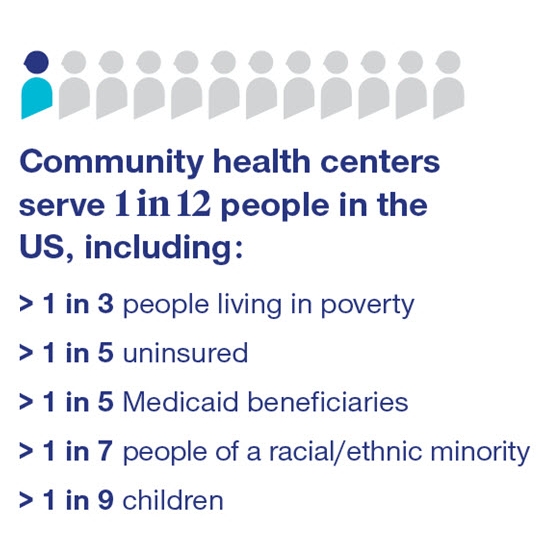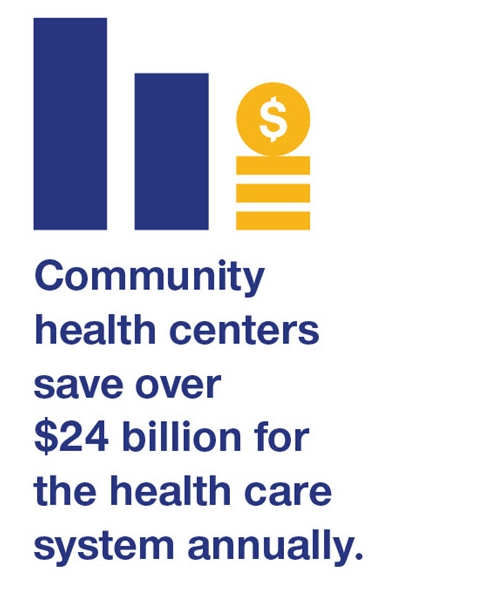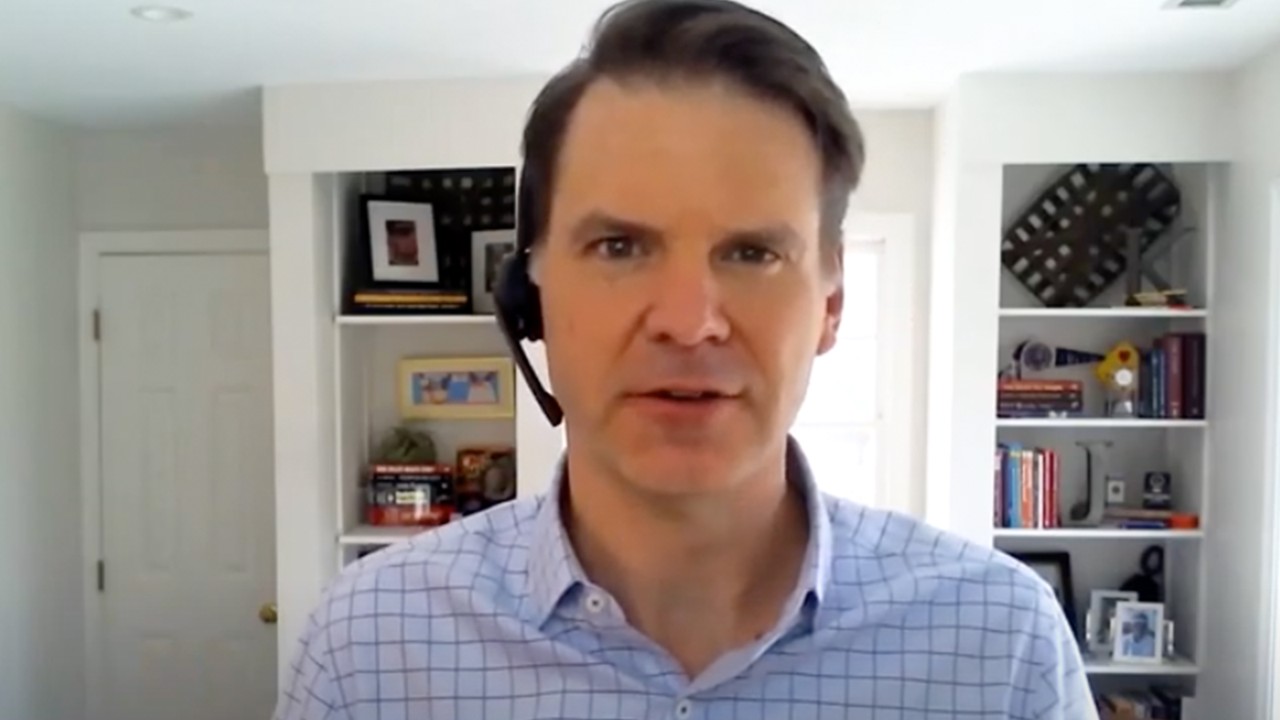Dedicated to partnering with health centers
Health centers are a foundational element to providing needed health and social care to individuals and communities, especially those that are the most vulnerable. As part of the commitment by UnitedHealthcare Community & State to create better health outcomes for all those we serve, we’re proud to work with health centers across the nation to assess community needs and identify and provide services to address those needs. We also work with Federally Qualified Health Centers (FQHCs) to integrate care and support easy access to care to more effectively address the needs of diverse populations and communities. Read below to see how our teams are furthering our commitment through community-based health center collaborations.

Sources: NACHC, 2018. Based on 2017 Uniform Data System data on federally-funded and look-alike health centers, estimates for annual patient growth, and national data sources. Health Center Fact Sheet. Bureau of Primary Health Care, HRSA, DHHS.

Source: Ku L, et al. Using primary care to bend the cost curve:
Estimating the impact of a health center expansion of health care costs. Policy Research Brief No. 14. September 2009.
Geiger Gibson/RCHN Community Health Foundation
Collaborative at the George Washington University.
Trusted care rooted in the communities we serve
Federally Qualified Health Centers (FQHCs) have long been the “boots on the ground” in their communities — acting as a cornerstone of care for Medicaid and underserved populations. Providing affordable and accessible care, FQHCs serve millions of individuals every year regardless of their ability to pay. FQHCs deliver a comprehensive array of services that address the primary, mental health, oral health, and social support needs of their communities.
FQHCs serve as a safety net for our most vulnerable populations, including children
From pediatrics to obstetrics/gynecology and preventative disease screenings, community health centers serve our Medicaid members throughout their lifetime. Federally-qualified health centers serve patients of all ages — 9% under age five, 57% ages 20-64, and 9% over the age of 65. One in nine children in America receive health care through a local health center — including over 800,000 children who receive their care from a health center based in their school.
Integrating care for the whole-person
Community health centers are meeting an increased demand for direct care and treatment, while expanding the types of services available to patients, including: medical, dental, behavioral health, and vision services. The number of behavioral health staff at health centers has tripled over the past 10 years and more than 95,000 patients received medication-assisted treatment for opioid use disorder at a local health center in 2018.

UnitedHealthcare is working with its FQHC Advisory Board and FQHC partners to identify areas to deploy assets and expertise to support this vital part of the country's delivery system.
FQHC National Advisory Board
In 2010, UnitedHealthcare formed a Federally Qualified Health Center (FQHC) advisory board to serve as a council to provide input and guidance to UnitedHealthcare on the policy and practice issues and trends relevant to Federally Qualified Health Centers. The FQHC National Advisory Board (FQHC Board) provides feedback and makes recommendations on practice quality, clinical approaches, population needs, and innovation strategies. The Board is comprised of national — and state — level health center associations and local FQHCs representing varying geographies and regions of the country. Read more about the board.



